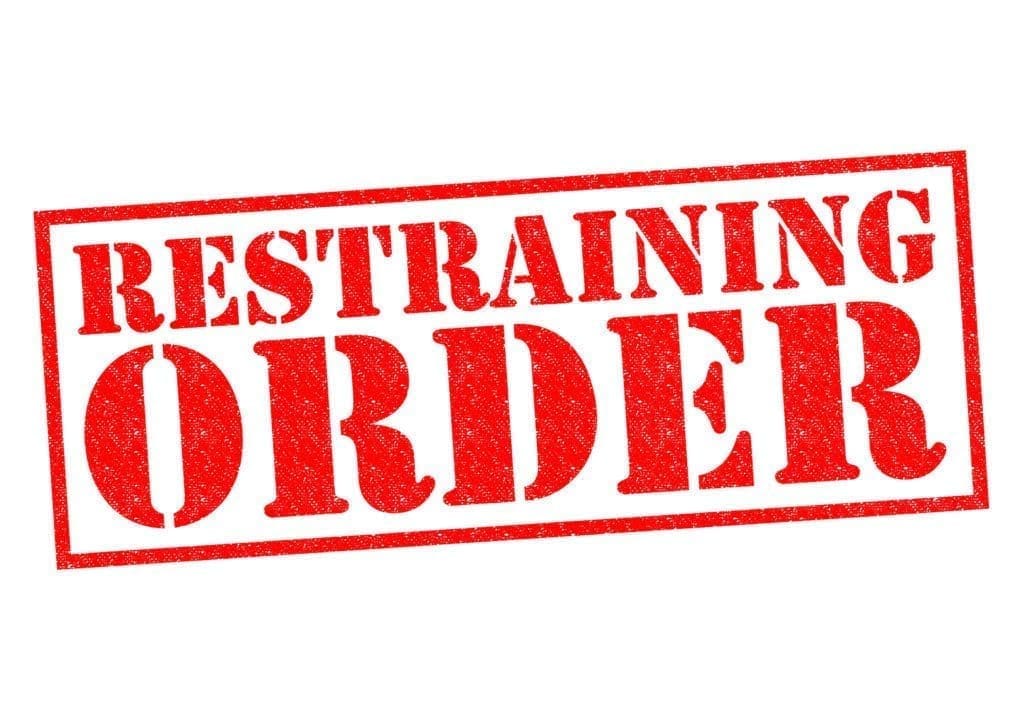Respondent dropped the restraining order. Why was I charged with a crime?
Sitting in the respondent’s chair is scary. Sitting in the defendant’s chair is even scarier. And while you focus on what’s happening in court, sometimes a few words skip past. “Only a judge can change the order” could be one of those phrases. Not the petitioner. Not the victim. So when the victim comes calling and you respond, you’ve exposed yourself to criminal liability. Even if she indicates that she “dropped the restraining order.” Certainly if the government finds out, they’re probably going to charge you. Our criminal defense attorney explains this complex criminal situation.
Contact Van Severen Law Office today regarding your violation of a restraining order case. Our top criminal defense lawyers have defended thousands of individuals facing charges just like yours. We can help. Call us at (414) 270-0202.
But again, she dropped the restraining order.
No she didn’t.
Here’s the thing: she can’t drop the order. She’s not the judge. Just like it requires a court commissioner or judge to grant a no-contact order, temporary restraining order, restraining order, or injunction, it requires the same to get rid of it. Court orders do not simply disappear.
How does she drop the order?
How to drop a no contact order in a criminal case:
Dropping a no contact order in a criminal case is the most difficult scenario. I’m writing this blog post in August 2019 in Milwaukee County, WI. Obviously different at different times, in different locations, the answer will be different. But it’s my opinion that judges are extremely reluctant to change no contact orders while a case proceeds. I’ve watched as dozens of victims have request a change in bail. I’ve seen nearly as many denied.
Reaching out to the district attorneys office (usually through a victim advocate), or the defense attorney is a great way to start. That individual will ensure that on the next court date the conditions of bond (the no contact order is a condition of bail) are addressed. On the next court date the victim be given a chance to address the no contact order. She asks to drop it. The judges makes his decision.
How to drop a restraining order or injunction:
This is a little more simple. Restraining orders and injunctions are civil cases. So there might be a criminal case also pending. But the restraining order and criminal cases don’t connect. In theory, this results in less concern on the part of the judge/court commissioner.
To drop the restraining order the petitioner files a petition requesting a dismissal of the order. Upon receipt of that petition, the court schedules a hearing to determine whether it’s appropriate to allow the order’s dismissal. Finally: the request for a hearing isn’t enough. A judge must order the dismissal. Until that order, the restraining order is active.
And what happens if I don’t wait for the order is officially dropped?
If you’re caught you could face charges. Remember – the person that just told you she dropped the order? She’s the same person who went through the hassle at the courthouse to obtain an order against you. Or, she called the police. If she lied then, she could be lying now. Or she could hold your actions above your head. “Do this or I’m showing the police that you contacted me.”

If I violate the law, and believe that she “dropped the restraining order,” even if she’s lying, what will I be charged with?
Surely a prosecutor could charge you. The potential crimes include:
Violation of a temporary restraining order or injunction
Violating a temporary restraining order or injunction is prohibited by section 813.12(8) of the Wisconsin Statutes. This crime is punishable by up to 9 months in the county jail, $10,000.00 in fines, or both. In particular, the elements of the offense, Wis JI-Criminal 2040 provides the elements:
- An injunction or temporary restraining order was issued against the defendant (respondent) in favor of the petitioner (victim); and
- The defendant committed an act that violated the terms of the injunction/temporary restraining order; and
- The defendant knew that the injunction/temporary restraining order had been issued, and that his acts violated its terms.
Obviously the second element fails a few ways. For one thing, a typical requirement of a restraining order is that the respondent avoid the petitioner’s residence or premises temporarily occupied. Certainly meeting her anywhere violates this standard condition. Another standard requirement is that the respondent cease the harassment of the petitioner. And finally, simply speaking to her frequently qualifies as harassment.
Bail jumping
Section 946.49 of the Wisconsin Statutes prohibits bail jumping. Basically, if the underlying charge is a misdemeanor, bail jumping is a Class A misdemeanor. And secondly, if the underlying charge is a felony, bail jumping is a Class H felony. Wisconsin Jury Instruction Criminal 1795 provides the elements of bail jumping:
- The defendant was arrested for a felony/misdemeanor; and
- The defendant released from custody on bond; and
- The defendant intentionally failed to comply with the terms of that bond.
In our scenario, the bond requirement was that the defendant not contact the victim. Secondly, this was after an arrest for a criminal charge. Basically, by contacting the victim, the defendant has intentionally failed to comply with terms of his bond.
Contact Van Severen Law Office for violation of a restraining order defense
Without a doubt: “I dropped the restraining order” doesn’t work. You must see proof the restraining order concluded. If, however, you violate any of these injunctions, contact Van Severen Law Office at (414) 270-0202.
Certainly, our top criminal defense attorneys defend bail jumping, violation of a temporary restraining order or injunction, and all other criminal cases. Finally, to begin fighting your case, call us at (414) 270-0202.


